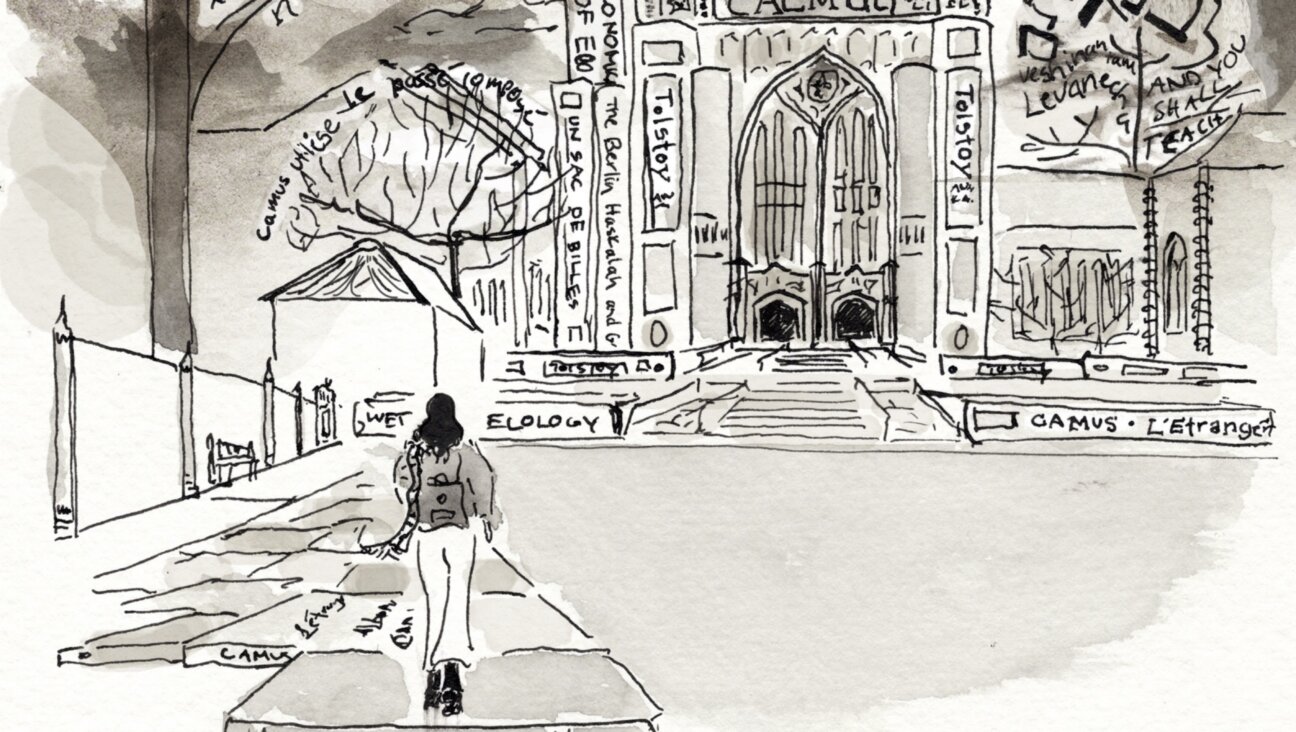Homes and Borders
In the hot desert scrub of southern Gaza this week, in scenes broadcast around the world, Israelis who were losing their homes to a government policy they thought cruel confronted soldiers executing that policy and begged for some miracle to change history.
The miracle did not come, but the settlers’ sacrifice seared the hearts of onlookers — those on the scene and those watching around the world. Whether or not they sympathized with the settlers and their struggle, few seemed unmoved by their pain. In Gaza, soldiers wept on the shoulders of homeowners they were evacuating. Around Israel, rabbis tore their garments in mourning. In New York, a statement by the leading coalition of American Jewish organizations, the Conference of Presidents of Major American Jewish Organizations, noted with equal solicitude its support for the Israeli policy decision and the “honor” due to the settlers “for their sacrifices and accomplishments.” In a nod to both sides of this unbalanced argument, it urged “healing.”
Only a few observers, most of them Israelis speaking and writing in Hebrew, were able to step back in the swirl of passion and observe that the drama was in large part a media show. “Excuse me, but I find this show unsettling,” the dean of Israeli news reporting, Nahum Barnea, wrote in Yediot Aharonot after the first day of confrontations. “In the army I grew up in, crying was not an option. Especially not crying over easily repaired calamities like tile roofing, bricks and plaster, decorative tile, Belgian profile windows and bathroom fixtures.”
For all the dramatic scenes of leave-taking, most Gaza settlers departed without violence. Most of those dragged out kicking and screaming in the final days were not families losing their homes, but teenagers and political activists from elsewhere — the West Bank, Israel proper, even New York — who had left their homes and come to Gaza to prevent disengagement for philosophical reasons. Those who wept the hardest were losing not a home but a political argument.
Their grief is genuine, but it has little to do with home or family. For decades, the settler movement has been hailed by Israelis for its willingness to sacrifice, to endure discomfort and danger for the greater national good. Successive Israeli governments supported the movement because they saw the settlements as a security rim. Settlers saw their lives as a holy mission, advancing the biblical mandate of Greater Israel. As long as their religious vision matched Israel’s defense philosophy, their world was whole.
Now that Israel’s defense assessment has changed, their world is broken. The loss is more than personal; they fear the spurning of the biblical mandate will bring down divine retribution, perhaps even a new exile. They want to appeal to Israel and the world not to challenge the holy word, not to let the Israeli army’s calculations of cold numbers and hard steel obscure the transcendent truth of the divine promise. But that argument has few takers these days.
The public good advanced by Israel’s withdrawal from Gaza is immediate and enormous. By leaving Gaza and part of the West Bank now — and additional parts of the West Bank later — Israel is taking its most concrete step ever to show that it is willing to compromise with its Palestinian neighbors. The immediate payback includes the lowest level of terrorist incidents in years, renewed acceptance on the world stage and a hope that a new page can be turned in long-term Israeli-Palestinian relations.
That last hope remains more a wish than it does an expectation. If there is a partner to be found, Israel now has shown that it can take painful steps toward compromise. If not, then at least Israel will have begun the long-overdue process of creating a defensible border for itself, in the elementary sense of a line that has Israel on one side and those who wish it ill on the other.

















